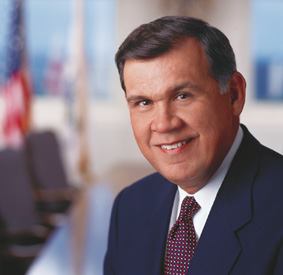In addition, many affordable housing developers disagree with Martinez’s philosophy that the FHA should not be subsidized and they are unhappy with the 30-point increase in the premium, says Nardi Riddle. “There are some deals that will not get done because of the increase,” adds Eisenman.
But, Martinez points out that the way the program is set up, the subsidies are never enough. “If I had released the $40 million emergency amount, we would still have been about $70 million short of what was needed to complete what was anticipated to come about this year,” he says. “So, it’s just clear that it’s a program we need to encourage. But when it requires going into subsidy, it’s almost like a bottomless pit. The fact is that these are programs that the private sector can administer. I think it’s a benefit to have the FHA securitization in the projects that are appropriate. But the fact of the matter is that I think it’s not necessary.”
Decentralization While the debate over how the FHA should be administered is ongoing, Martinez sees the solution to the problem as bringing about a partnership between the government and the private sector.
“We want to know what is working and what isn’t working. We want to know how HUD, is at times, a bad partner and how we can make the agency a more appropriate partner,” says Martinez.
“I am a great believer that the ingenuity of the private sector, with enough assistance and partnership from the government, can provide the answers that we need in our country to meet this issue of affordable housing,” says Martinez. “The government can try to peel away regulations and unnecessary costs, and facilitate the permitting process.”
While Martinez was the chair of an affordable housing task force for the mayor of Orlando, Fla., he realized how much goes into the cost of housing – single-family or multifamily – because of the things government imposes upon that system. He thinks the process can be streamlined.
“I think the deregulation or reviews at the local level that [focused on] bringing back more affordability in housing, along with a lot of partnerships and creative thinking, can come from the private sector.” Martinez says that HUD would be more responsive if it was less centralized. “I think any time a local HUD office has to check with some other region of the country or with Washington, before a pencil can be moved, that it’s a delay and that’s an impediment to progress,” he says.
“I want to see our regional offices become more of decision-making offices. If we can shift the decision-making power out to the field offices, they will have more flexibility to react to local situations, which will make them a more appealing partner.”
While there is a lot of talk about decentralization, the industry seems to be confused on what that means because the multifamily programs are largely decentralized already, says David Goodman, CEO of Red Capital.
HUD already has decentralization in respect to the HUD offices, agrees Eisenman. There is not much room to go further, unless HUD plans to make the local offices autonomous. However, Eisenman thinks that is a terrible idea. “It’s the U.S. Department of Housing and Urban Development, not an individual state department of housing. If he disconnects the field offices from the leadership in Washington, you will have as many policies in the field as you have offices,” he explains.
But, Simpson Housing’s Costa believes Martinez’s decentralization program would help give more authority to people in the field, which will help speed the decision process. “I think it would give HUD a shot in the arm,” he says. “HUD offers great programs. The only problem is the time it takes to get through the underwriting process.”
The bottom line is that you’ve got to make or streamline the existing programs to make it easier to work with HUD and to prevent obstacles in creating housing, says Herb Collins, ex-chairman of Boston Capital and a member of the Millennium Housing Commission. And, he says, decentralization can help accomplish that.
